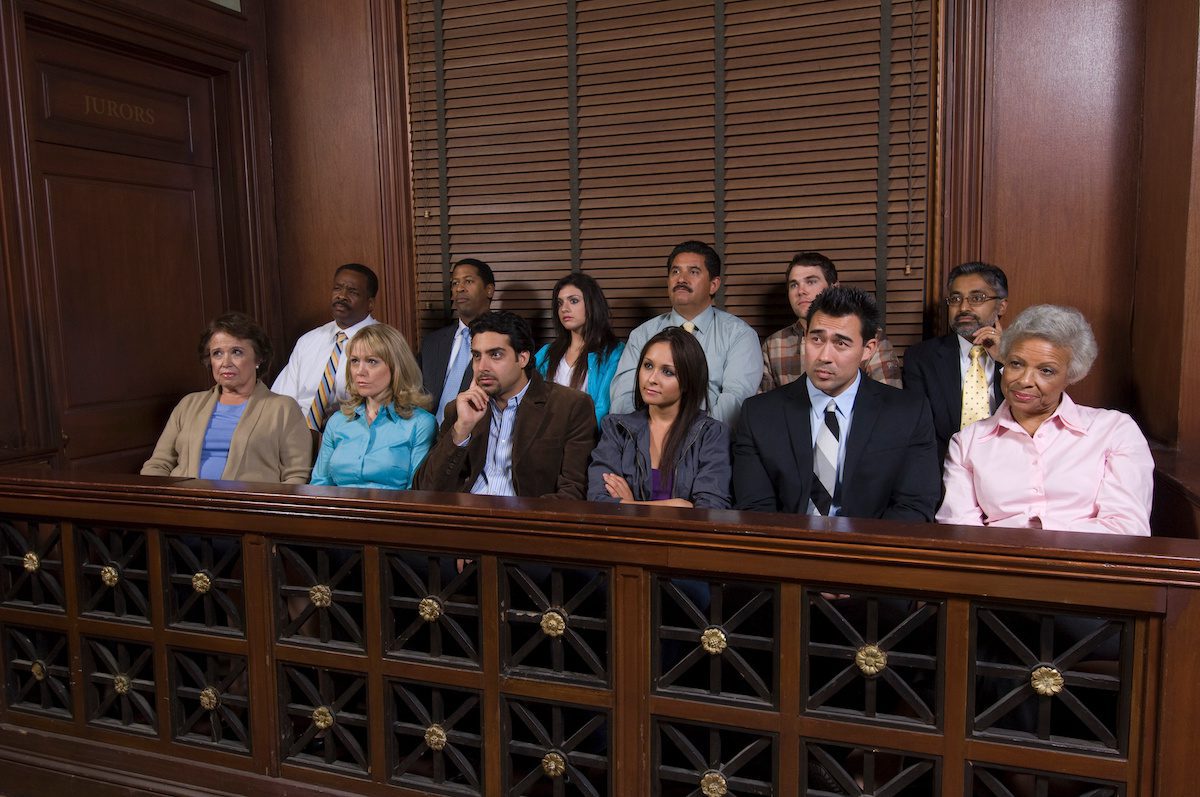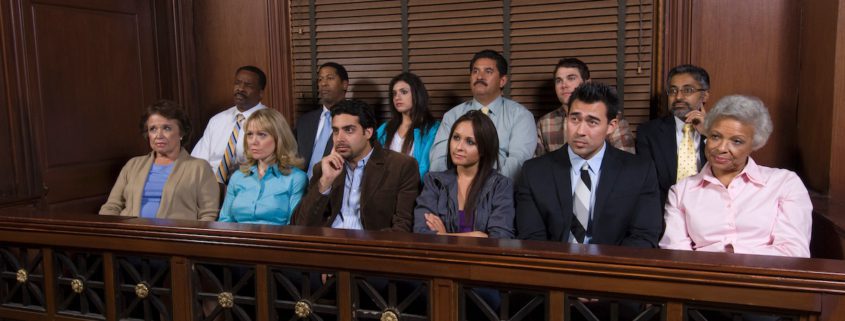The Death Of The Educated Jury: The Plaintiff’s Malpractice Lottery

As in the times of the Romans, the common man is called to perform his civic duty. I was called for Jury duty today. I had all the common emotions associated with such a calling:
- I had not been able to go the last two times, as I was out of the country, but I had no good reason to try to avoid it this time.
- I could not wait to get my check for $17.20 for the day. Such an insult—they could at least pay me what I’m worth! After all, they pay congressmen for doing nothing.
- How am I going to get there? Parking would cost more than the daily stipend.
- What shall I wear? It’s 92 degrees out, and I will be drenched after 10 minutes on the subway platform. Shall I bring work or pleasure reading?
- Did I really have to associate with lawyers today, and be treated like herded cattle? Try to be positive about the ineffective jury system, was my mantra.
- What about those hard chairs? Maybe I will get a comfortable one, but not likely.
- How was I going to stay awake through a day of jury selection?
Well, to my surprise, I actually learned something today, thanks to the County Court system. I decided that I was going to try and be interested in the process, even though all they want is my body in a chair. I would try to learn about the prospective case, and maybe I actually have some education on the issue.
Do they really want an educated jury?
It turns out they did not want my body in a chair, and they certainly did not want any educated ideas from me. The source of questions put to you while you are in the jury box is right on the back of your summons. They are pretty generic questions, however… They don’t ask your education level. That’s your first clue.
They showed us a video, separated us into three groups, and then herded each group up to the 21st floor, where they put us back into one group. The logic escaped me. When the location of the bathrooms was announced, there was an enthusiastic movement in phalanx. We waited for those people to return and reshuffle the herd.
We then marched into the courtroom, two by two. To my surprise, those inside were standing at attention, like we were the entering graduating class. It was the last show of respect before they dove into our personal lives… though it turns out they don’t care as much about our lives as they do whether we think and have social interaction.
We all sat down. Then one third was asked to stand and vacate their chairs, so that a different third could take their chairs. Those displaced retreated to the now empty chairs remaining. So far, we’d got to play video, follow the leader, potty training and musical chairs. The next and hardest game awaited: sit still and be quiet while we bore you to death with redundant questions. BPM, I thought… just a little Business Process Management would go a long way.
Mine was a malpractice case against a doctor, a civil case, money damages. The judge asked right off the bat if we had any problems with people who drink alcohol. We took that to mean that the plaintiff (a deceased man’s estate) was concerned because he drank too much. One person had a problem, but he was just singled out and told to sit down. The judge then asked our ages, our employments, as well as those of everyone else in our respective family trees. He asked our history of crimes against us, whether the perpetrators were ever caught, and if the experience tainted our views of the legal system. Of course, none of the perps had been caught and—of course—none of us were prejudiced.
I was lucky enough to be shuffled into the jury box chairs with the first herd. I felt so sorry for the others… the repetitive questions could drive a sane man to drink. Maybe the court system really could use some BPM! But then that might actually reduce staff, which would be unacceptable.
The judge asked the first box of four potential jurors their names, and repeated the other questions that had already been asked on the back of the summons. He asked if they knew anything about the case, the attorneys, or the participants. Each also provided some additional clarifications of their lineage, down to the occupations and options of their children and their children’s spouses. This took quite a while, as each prospective juror had to be asked the same questions individually, as well as a host of new ones. There seemed to be a real desire on the part of the court to identify the people who had death with them before… and to make sure that only the ones with positive memories moved forward in the process.
Next, we endured a brain-numbing series of questions from the plaintiff’s counsel. These included:
- Our names and ages again. I wished I were younger. I don’t feel my age!
- What we do at our jobs.
- Are we personal friends with any doctors?
- Do we know anything about hospital care?
- Has anyone ever died in our family? In our house?
- Are we averse to large jury awards?
- Do we know about Tort Reform?Are we thinking individuals?
- Do we have any idea what is going on in the world?
- Et cetera.
Since this was a malpractice case, you could see the plaintiff’s counsel wanted people who had no association with medicine and no understanding of current events and litigation trends. A number of people were released ahead of me by the judge or the plaintiff’s counsel for such offenses as:
- Having an opinion on the size of jury awards.
- Knowing doctors who had been sued for malpractice… or just being overly familiar with the term.
- Having had a less-than-perfect experience with a doctor.
- Having a doctor as a friend.
- Knowing about the medical malpractice insurance crisis.
- Saying that a dead person might not need a million-dollar award.
The defense counsel brought up the rear with a few questions of his own. However, since all the thinking jurors were already gone—myself excluded, of course—all he could really ask was if people had any knowledge of a few terms, and if they could focus long enough to hear what he had to say after listening to the plaintiff’s counsel ramble on in court.
Before I was booted off the jury, we played musical chairs again while people were eliminated. When I got to chair number four, the three people who had been approved sat ahead of me. One very nice lady, who spoke limited English, admitted that she does not listen to the news except for a half hour a day while eating lunch in a cafeteria. The second was a young woman who does not read newspapers or watch any news on TV. The third was a guy who works for the post office and had no opinions about anything. Plus, there hadn’t been any deaths in his family where doctors were involved.
I was booted next. The judge asked me my job—insurance executive—and my wife’s job. I said that I used to be married to a lawyer. He asked what kind of law she practiced, and if she talked about it at home. When I admitted that we discussed her work quite regularly, the lawyers present gave a little knowing giggle.
Then the judge asked if this would prejudice my view of the case, and if I had ever experienced a crime. But before he could complete the second question, I said that while my ex-wife’s job would not prejudice my views, my current job would. He looked at me like I was not supposed to interrupt and then said, “Why would your job prejudice your views?” I said that I had recently published a paper on frivolous medical malpractice lawsuits. He asked if this would color my thinking, and I said that when one had seen as many excessive jury awards as I have….
He booted me before I could finish the sentence. The malpractice lottery is alive and well.
It’s a sad feeling to be booted from a jury, like not being picked for a volleyball game, or waving your hand and watching your teacher call on someone else. I got up and did the walk of shame to the clerk of the court, who returned my summons and sent me back to the original sign-in room.
Looking back on my experience, I started to form the strong opinion that the ideal jury of your peers would be composed of six people sorta think your way and another six that don’t. That way the lawyers would actually have to put on a quality presentation in order to get everyone to agree on a verdict. But our court system seems to be focused not on selecting jurors who can be objective, but on selecting jurors that are not in touch with the news, who do not form opinions on current events, and who are really happy to get a few days off from work. I am sure that this varies by judicial system, but I doubt it varies much.
Surely I don’t mean to insult the jurors who were finally selected on my day at court. Still… shouldn’t the defense attorney have been able to keep prospective jurors who were not in favor or large awards? Couldn’t there have been someone on the jury who was, in fact, friends with a doctor? The court seemed to go out of its way to load the odds in favor of the plaintiff.
By packing the jury box with people who do not read, watch the news, or think about current events, are we really selecting a jury of our peers? In today’s media-saturated world, you really have to work at it not to have an opinion on trends in medical expenses, or an awareness of the “plaintiff’s malpractice lottery.” Faced with such an uneducated and largely biased jury, if you were the insurance company, wouldn’t you settle before trial? Doesn’t each heir of this poor plaintiff’s estate deserve some piece of the American dream of large jury awards?
It seems to me that a random jury selection of random people of all social and economic levels would be much more logical than the current jury selection process! I, for one, am insulted at what the judicial system considers to be a jury “of my peers”: populated with people who have gone way out of their way to know nothing about what is happening in the world today! But then government regularly insults my intelligence.
I hope your town’s jury selection process is more enlightened than the one in mine!

 EINSURANCE
EINSURANCE